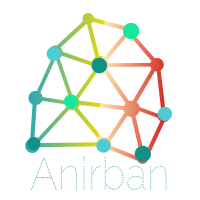Research Ideas: Healthcare Game
The usage of the current healthcare system in India is largely managed by the individuals themselves rather than the government. Thus the decision of the type of healthcare facility being availed has largely been acting like a mammoth decentralized machine where finding patterns of decision making is a humongous task. Hence, if one would like to redesign the healthcare system taking into consideration the optimal usage of it, (constrained) minimal cost, and maximal generation of social welfare from it, it is imperative to take care of individual decision making behavior in the exercise of system design.
Although individual decision making plays a large part in the utilization of the healthcare system, more often than not, the decision of availing a certain kind of care is more a community decision than a purely individual one. What I mean by community here, is a group of 'trusted' individuals who seek and provide health related advice to each other. This hypothesis is the precise base on which this paper is based on. In this research, I would like to understand such communities, map their decision making, and accordingly suggest the key parameters of health system design to the concerned authority.
Methodology
I would like to see the design of the healthcare system and its usage as a Game, in game theoretic terms, between the State (the government) and the Subject (the population). While the state has the power of making decisions about
- How many Primary/Secondary/Tertiary systems to be set up
- How dense or how sparse will the facilities be
- What will be the investment for each type of facility
- What will be the cost to access each type of facility
the populace has the power to decide which type of care to access, or access any at all. The combination of both such decisions affect
- The general health of the nation
- The optimal usage of the system
- The social welfare and human development index of the nation
Thus, when we see the transaction between the government and the public as a game, we have clearly defined ways to identify which combination of decision has the minimal possibility of breaking down (Evolutionary Game Theory can help us). Also, when we have the model of the game available to us, we can also find out the parameters that can be tweaked to achieve the desired equilibrium state.
The primary challenge in this research is to figure out the payoffs in the game. I propose to create parametric payoff functions for each of the players in the game, and estimate the parameters using survey of existing healthcare system. The primary parameters that will define the payoffs for each player in the game include but not limited to: distribution of investment in human capital between primary/secondary/tertiary care systems, the network parameter of the facility layout, healthcare budget in relation to the GDP, community based affinity towards each particular healthcare level, prevalence of insurance systems, ease-of-access ratio (depending on cost, rush, quality) between government and non-government facilities, experience based preference of the patient and so on. The parameters will be estimated from the real time usage data of the current healthcare facilities in India, and then I wish to locate the parameters that will prove to be the most crucial for reaching the aforementioned objectives in the healthcare system in the country.
